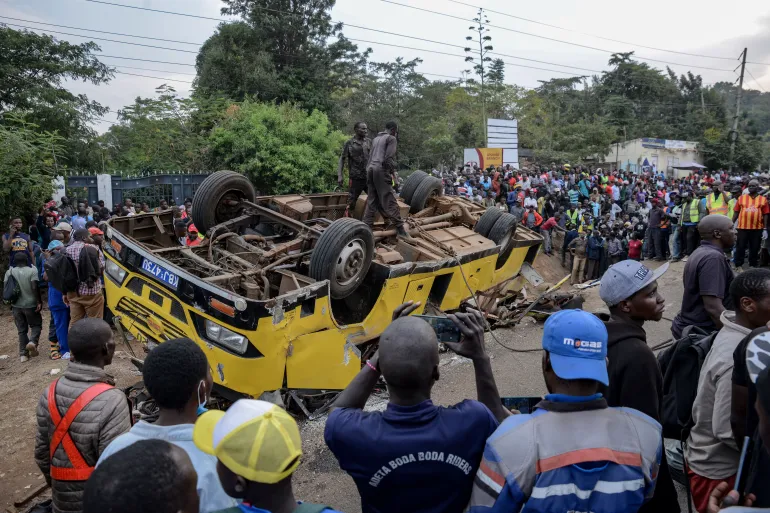A lobby group has renewed calls for stricter laws governing the operation of emergency vehicles in Kenya following a tragic ambulance crash that claimed six lives in Elementaita.
Taking to social media on Sunday, the initiative urged lawmakers to make Emergency Vehicle Operator licences (EVOC) mandatory for all drivers of ambulances, fire engines, and police vehicles. The group further pushed for regular refresher courses tailored to different environments urban, rural, and highways citing the high-risk nature of these roles.
“This should be a wake-up call. We urgently need legislation making EVOC licences compulsory, with refresher training customised for different environments,” the statement read. “Too often, we see excellent post-crash care from teams such as St John Ambulance and EMS Kenya, but far less focus on preventing accidents through safe and skilled operation of emergency vehicles.”
The lobby emphasised that ambulance drivers carry a heavy responsibility, as lives depend not only on their speed but also on their safety behind the wheel. “The public deserves assurance that every driver of an emergency vehicle is fully trained and regularly updated. Prevention through proper EVOC training should be enshrined in law,” the statement added.
Currently, under the Traffic Act Cap 403, emergency vehicles include ambulances, fire engines, police vehicles, and those authorised by the Inspector-General. Drivers of these vehicles, while on official duty, are permitted to exceed speed limits and disregard some traffic rules in emergencies. However, the lobby noted that these legal exemptions should come with stricter safety obligations.
The calls followed Saturday night’s accident involving a St Mary’s Mission Hospital Elementaita ambulance. The crash killed all six occupants, including a critically ill patient, her husband, two relatives, a nurse, and the driver. Witnesses reported that the driver, who was speeding while rushing the patient to hospital, lost control of the vehicle.
As investigations continue, the lobby insists the tragedy should serve as a turning point for Kenya to strengthen its emergency vehicle laws and focus on prevention rather than reaction.

